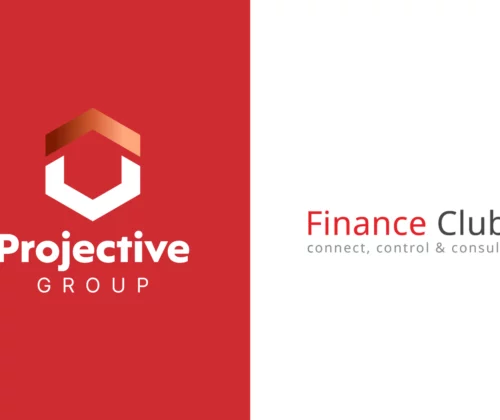
The European Commission (EC) published the MiFID Quick Fix Directive (“MiFID Quick Fix”) on 26 February 2021. By 28 November 2021, Member States must have transposed the directive into national implementing legislation. They must then apply the MiFID Quick Fix rules from 28 February 2022. The MiFID Quick Fix contains exemptions and adjustments to a number of provisions from MiFID II. In this news item, we briefly describe what changes to the MiFID II requirements there will be for investment firms providing investment services. Most of the changes relate to the provision of services to professional clients.
Table of Contents
Why a Quick Fix?
What is striking is that there is that already a review process of MiFID II/MiFIR. The EC has already conducted a consultation for this and ESMA is also already reviewing MiFID II/MiFIR. So why is a ‘Quick Fix’ of MiFID II being implemented at short notice anyway? It has to do with the EC’s disaster recovery package: Next Generation EU.
The recovery plan should ensure the economic recovery of European member states following the pandemic. For this, it is important that sufficient financial resources are raised in the financial markets. The EC has therefore looked at which provisions from MiFID II can be adjusted so that investment firms’ compliance costs are reduced and any distortions of competition can be removed, while also taking investor protection into account. The MiFID Quick Fix thus aims to provide relief from some MiFID II provisions for investment firms, while also supporting the EU’s economic recovery.
A Quick overview of the MiFID Quick Fix
The MiFID Quick Fix contains a number of exemptions and amendments to MiFID II. Below, we briefly discuss the most relevant changes for investment service providers.
- Exemption from cost transparency obligation: There will be an exemption from the cost transparency obligation when investment services are provided to professional clients. However, this exemption does not apply when investment advice or asset management is provided. This is because professional investors entering into investment advisory or asset management relationships do not necessarily have sufficient knowledge and experience, the EC said.
- Electronic Client Disclosure: MiFID II stipulates that information to clients will be provided on paper by default. Under certain conditions, this can be done via a durable medium or via the website. To facilitate communication with clients (and thus the investment process), MiFID Quick Fix ensures that electronic provision of information to clients becomes the standard. However, non-professional clients may still request to receive the information on paper.
- Periodic reporting exemption: The EC believes periodic reports are useless for eligible counterparties and professional clients. It has been found that these parties do not read the reports and make quick investment decisions instead of following a long-term investment strategy. MiFID Quick Fix therefore includes an exemption from the requirement to provide periodic reports to eligible counterparties and professional clients. For professional clients, they can choose to receive these reports anyway.
- Exemption from cost-benefit analysis when switching products: Asset managers or investment advisers must now carry out a cost-benefit analysis when making a switch of products in a client’s portfolio. This means they have an obligation to obtain and analyse the necessary information on the costs and benefits of switching products. Such a procedure is considered too burdensome with regard to professional clients, especially as this type of client often tends to switch products frequently. Through the MiFID Quick Fix, there will therefore be an exemption from this requirement for professional clients, only they must have the option to opt for such analysis.
- Product governance requirements exemption: The MiFID Quick Fix includes an exemption from product governance requirements for certain bonds. These are ‘straightforward’ bonds, with no embedded derivatives. However, the bond may contain an early redemption clause (‘make whole clause’). The EC states that such bonds are generally considered safe and simple products suitable for retail investors. In addition, eligible counterparties are considered to have sufficient knowledge of financial instruments. There will therefore also be an exemption from the product governance requirements on financial instruments traded or distributed exclusively to them. This will then only be relevant when investment firms provide ‘execution only’ services to eligible counterparties, as such clients are considered professional clients in the case of an investment advisory or asset management relationship.
- Research small- and mid-cap firms: Under MiFID II, brokers must charge a separate fee for research. They are not allowed to provide this information to investment firms for free. This is also known as unbundling of research fees. To encourage investment in small- and mid-cap companies in the financial markets, the MiFID Quick Fix comes with a separate regime for the provision of research on small- and mid-cap companies by brokers to investment firms. Under certain conditions, this will allow investment firms to receive bundled research services from brokers.
Objective achieved?
Although the MiFID Quick Fix is intended to give investment firms relief from some MiFID II requirements, it remains to be seen whether this will be the case in practice. Most of the changes apply only to investment services provided to professional clients. This means that not all investment firms can make use of the exemptions. To make use of those exemptions, investment firms will have to take the necessary actions. These include making changes to business operations, disclosures and client agreements. Following these actions, the MiFID Quick Fix will be able to provide (minor) relief to investment firms providing services to professional investors.
What’s next?
The MiFID Quick Fix will have to be implemented in Dutch laws and regulations. At the moment, no (draft) implementation law is available yet, but a consultation on the proposed implementation law will probably follow first. It is then intended that MiFID Quick Fix will apply from 28 February 2022. After the MiFID Quick Fix, all the changes will not be finished for now. As mentioned, the planned revision of MiFID II/MiFIR is still on the agenda. We will of course keep you updated on all developments.
Want to know more?
Do you have questions about the implementation or scope of regulations such as MiFID II? Our legal consultants will be happy to help. Please feel free to contact us.
Want to learn more about MiFID II compliance in your practice? Then follow our MiFID II Awareness e-learning.




